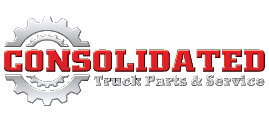Wondering If Your Brakes Will Pass Inspection?
Last week was Brake Safety week in the US, and if recent statistics are telling the truth then it is a topic that needs to be covered often. Statistics tell us that when it comes to commercial vehicles, nearly half have some form of brake system problem, which is a violation. That’s why thousands of brake inspections are currently being planned for Brake Safety Week (Sept. 7th – 13th). Professional brake inspectors will be looking very closely at the brake systems of all commercial vehicles in order to see if there are any brake problems that need to be addressed. This can include looking for loose-fitting or absent parts, fluid leaks, damaged linings and/or pads, and more.
If you’re concerned that you’re truck may receive a brake violation, the following information will help.
Remember that it’s always a good idea to thoroughly inspect a brake system before heading out. Taking the time to perform a visual break inspection helps you to make sure that the entire brake system is performing, as it should. This way if there happens to be a problem, it can be caught early and taken to a professional mechanic for repair.
The following is a checklist for you to follow when performing a visual brake inspection.
- Check all linking hardware (i.e. nuts, pins, rods) for damages or extreme wear
- Make sure the slack adjuster is in its correct position
- Check the brake chamber for possible leaks
- Check the air lines for wear and tear
- Check the brake linings and brake pads for wear
- Check the brake drum or rotor for wear and possible cracking
A brake technician should also conduct an operational check of the overall system. They should make sure:
- The brake system isn’t leaking any air
- Any low-air caution indicators are functioning correctly
- The parking brake and emergency brake system will trigger if the air pressure falls below a certain level
- The tractor protection valve (exclusive to tractor trailers) is functioning properly
It’s important to make sure that drivers understand the basics when it comes to inspecting their brakes. They should be able to look at all of the brake components and determine whether or not they’re functioning, as they should. Some of these components include the brake chamber, air lines, pushrod, brake shoes, brake pads, and drums and rotors. Other vehicle components that need to be carefully examined include looking for leaks, checking warning devices, checking the compressor, as well as thoroughly checking the emergency brakes and parking brakes. It’s important for a driver to be able to fully understand how their brake system works so that they don’t have to worry about failing a brake inspection.
The above information will help keep your truck brakes working properly, which is essential for both the driver and everyone else on the road. It’s important to make sure that a brake system is always working properly so that it can pass inspection – whether it’s Brake Safety Week or not.



